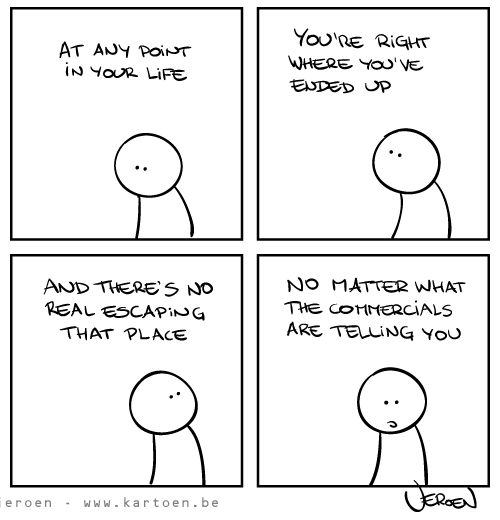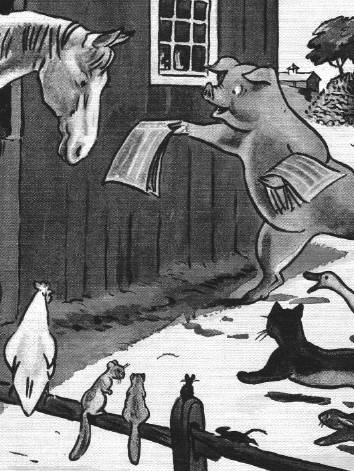scrimmage
What you contemplate you imitate

Welcome to 2025
American Preeminence Is Disappearing
Fifteen Years Early
By Michael T. Klare
October 26, 2009
...In November 2008, the National Intelligence Council (NIC), an affiliate of the Central Intelligence Agency, issued the latest in a series of futuristic publications intended to guide the incoming Obama administration. Peering into its analytic crystal ball in a report entitled Global Trends 2025, it predicted that America's global preeminence would gradually disappear over the next 15 years -- in conjunction with the rise of new global powerhouses, especially China and India. The report examined many facets of the future strategic environment, but its most startling, and news-making, finding concerned the projected long-term erosion of American dominance and the emergence of new global competitors. "Although the United States is likely to remain the single most powerful actor [in 2025]," it stated definitively, the country's "relative strength -- even in the military realm -- will decline and U.S. leverage will become more constrained."
...the economic crisis and attendant events have radically upset that timetable. As a result of the mammoth economic losses suffered by the United States over the past year and China's stunning economic recovery, the global power shift the report predicted has accelerated. For all practical purposes, 2025 is here already.
Six Way Stations on the Road to Ordinary Nationhood
Here is my list of six recent developments that indicate we are entering "2025" today. All six were in the news in the last few weeks, even if never collected in a single place. They (and other events like them) represent a pattern: the shape, in fact, of a new age in formation.
1. At the global economic summit in Pittsburgh on September 24th and 25th, the leaders of the major industrial powers, the G-7 (G-8 if you include Russia) agreed to turn over responsibility for oversight of the world economy to a larger, more inclusive Group of 20 (G-20), adding in China, India, Brazil, Turkey, and other developing nations. Although doubts have been raised about the ability of this larger group to exercise effective global leadership, there is no doubt that the move itself signaled a shift in the locus of world economic power from the West to the global East and South -- and with this shift, a seismic decline in America's economic preeminence has been registered.
"The G-20's true significance is not in the passing of a baton from the G-7/G-8 but from the G-1, the U.S.," Jeffrey Sachs of Columbia University wrote in the Financial Times. "Even during the 33 years of the G-7 economic forum, the U.S. called the important economic shots." Declining American leadership over these last decades was obscured by the collapse of the Soviet Union and an early American lead in information technology, Sachs also noted, but there is now no mistaking the shifting of economic power from the United States to China and other rising economic dynamos.
2. According to news reports, America's economic rivals are conducting secret (and not-so-secret) meetings to explore a diminished role for the U.S. dollar -- fast losing its value -- in international trade. Until now, the use of the dollar as the international medium of exchange has given the United States a significant economic advantage: it can simply print dollars to meet its international obligations while other nations must convert their own currencies into dollars, often incurring significant added costs. Now, however, many major trading countries -- among them China, Russia, Japan, Brazil, and the Persian Gulf oil countries -- are considering the use of the Euro, or a "basket" of currencies, as a new medium of exchange. If adopted, such a plan would accelerate the dollar's precipitous fall in value and further erode American clout in international economic affairs.
One such discussion reportedly took place this summer at a summit meeting of the BRIC countries. Just a concept a year ago, when the very idea of BRIC was concocted by the chief economist at Goldman Sachs, the BRIC consortium became a flesh-and-blood reality this June when the leaders of the four countries held an inaugural meeting in Yekaterinburg, Russia.
The very fact that Brazil, Russia, India, and China chose to meet as a group was considered significant, as they jointly possess about 43% of the world's population and are expected to account for 33% of the world's gross domestic product by 2030 -- about as much as the United States and Western Europe will claim at that time. Although the BRIC leaders decided not to form a permanent body like the G-7 at this stage, they did agree to coordinate efforts to develop alternatives to the dollar and to reform the International Monetary Fund in such a way as to give non-Western countries a greater voice.
3. On the diplomatic front, Washington has been rebuffed by both Russia and China in its drive to line up support for increased international pressure on Iran to cease its nuclear enrichment program. One month after President Obama cancelled plans to deploy an anti-ballistic missile system in Eastern Europe in an apparent bid to secure Russian backing for a tougher stance toward Tehran, top Russian leaders are clearly indicating that they have no intention of endorsing strong new sanctions on Iran. "Threats, sanctions, and threats of pressure in the current situation, we are convinced, would be counterproductive," declared the Russian foreign minister, Sergey V. Lavrov, following a meeting with Secretary of State Hillary Clinton in Moscow on October 13th. The following day, Russian Prime Minister Vladimir Putin said that the threat of sanctions was "premature." Given the political risks Obama took in canceling the missile program -- a step widely condemned by Republicans in Washington -- Moscow's quick dismissal of U.S. pleas for cooperation on the Iranian enrichment matter can only be interpreted as a further sign of waning American influence.
4. Exactly the same inference can be drawn from a high-level meeting in Beijing on October 15th between Chinese Prime Minister Wen Jiabao and Iran's first vice president, Mohammed Reza Rahimi. "The Sino-Iran relationship has witnessed rapid development as the two countries' leaders have had frequent exchanges, and cooperation in trade and energy has widened and deepened," Wen said at the Great Hall of the People. Coming at a time when the United States is engaged in a vigorous diplomatic drive to persuade China and Russia, among others, to reduce their trade ties with Iran as a prelude to toughened sanctions, the Chinese statement can only be considered a pointed rebuff of Washington.
5. From Washington's point of view, efforts to secure international support for the allied war effort in Afghanistan have also met with a strikingly disappointing response. In what can only be considered a trivial and begrudging vote of support for the U.S.-led war effort, British Prime Minister Gordon Brown announced on October 14th that Britain would add more troops to the British contingent in that country -- but only 500 more, and only if other European nations increase their own military involvement, something he undoubtedly knows is highly unlikely. So far, this tiny, provisional contingent represents the sum total of additional troops the Obama administration has been able to pry out of America's European allies, despite a sustained diplomatic drive to bolster the combined NATO force in Afghanistan. In other words, even America's most loyal and obsequious ally in Europe no longer appears willing to carry the burden for what is widely seen as yet another costly and debilitating American military adventure in the Greater Middle East.
6. Finally, in a move of striking symbolic significance, the International Olympic Committee (IOC) passed over Chicago (as well as Madrid and Tokyo) to pick Rio de Janeiro to be the host of the 2016 summer Olympics, the first time a South American nation was selected for the honor. Until the Olympic vote took place, Chicago was considered a strong contender, especially since former Chicago resident Barack Obama personally appeared in Copenhagen to lobby the IOC. Nonetheless, in a development that shocked the world, Chicago not only lost out, but was the city eliminated in the very first round of voting.
"Brazil went from a second-class country to a first-class country, and today we began to receive the respect we deserve," said Brazilian President Luiz In?cio Lula da Silva at a victory celebration in Copenhagen after the vote. "I could die now and it already would have been worth it." Few said so, but in the course of the Olympic decision-making process the U.S. was summarily and pointedly demoted from sole superpower to instant also-ran, a symbolic moment on a planet entering a new age.
So, welcome to the world of 2025. It doesn't look like the world of our recent past, when the United States stood head and shoulders above all other nations in stature, and it doesn't comport well with Washington's fantasies of global power since the Soviet Union collapsed in 1991. But it is reality.
Excerpts above from:
http://www.tomdispatch.com/post/175131/michael_klare_the_great_superpower_meltdown
via
http://www.informationclearinghouse.info/article23817.htm










